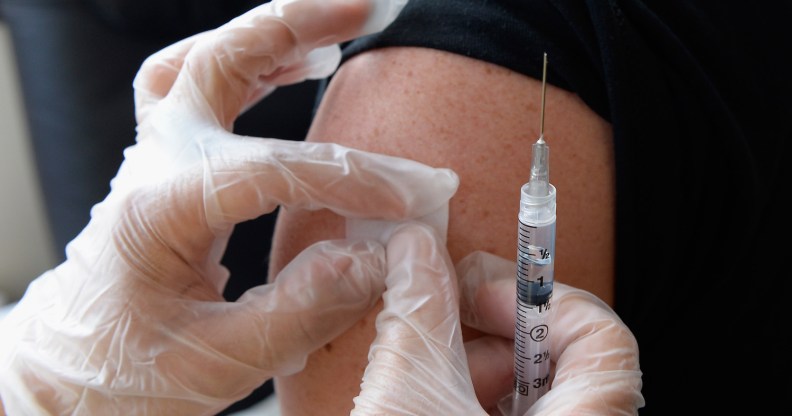Officials in some US cities rush to vaccinate gay men against meningitis amid outbreak

An increase in the proportion of meningitis cases in the US affecting gay and bi men has led to officials targeting men who have sex with men with vaccinations.
The number of cases of the rare disease affecting gay and bi men has drastically increased in cities across the US, and cannot be explained by officials.

No medical reason can be blamed for the large proportion of cases in queer men.
Cases in New York, Chicago and Southern California have seen the increase, which was described as “perplexing” by medical officials.
In Los Angeles and Orange counties, officials have set up pop-up vaccination clinics in gay bars.
“We’re trying to blanket the world with that information,” said Dr. Franklin Pratt, medical director of the L.A. County Department of Public Health’s immunization program told the LA Times.
“It is perplexing,” Dr Rachel Civen, a medical epidemiologist at LA County’s Department of Public Health told the LA Times.
There have been 24 cases of meningitis in men who have sex with men in LA and Orange counties since March.
To compare, last year there were 12 cases of meningitis in the county, one of which was a gay or bisexual man.
Similarly in Long Beach this year, half of six cases of meningitis have affected gay men.
Meningitis, transmitted through saliva, can still cause permanent brain damage or hearing loss even if people survive an infection.
A joint task force of federal, state and local public health officials are investigating what was described in the LA Times as an “outbreak”, estimated to have begun in February.
Most of the cases of gay and bi men have been reported in the past two months, and an Orange County man died this year after being infected.
“Certainly my patients have shown concern that something is running through the community like wildfire,” Dr Jay Gladstein, an internal medicine doctor in LA told the Times.
The doctor said the disease, which is more difficult to catch than other saliva-borne illnesses, is more likely in men who have several sexual partners and who use drugs and have anonymous sex.
“They’re looking at as many things that they can think of that might explain this — behaviors, sexual partners, nonsexual partners, close intimate contact in which saliva might be exchanged, immune status, HIV-positive, HIV-negative, other sexually transmitted infections,” said Dr Robert Bolan, the medical director at the Los Angeles LGBT Center.
Officials in Los Angeles in 2014 urged gay and bisexual men to get vaccinated against meningitis after three deaths of men aged between 27 and 28.

